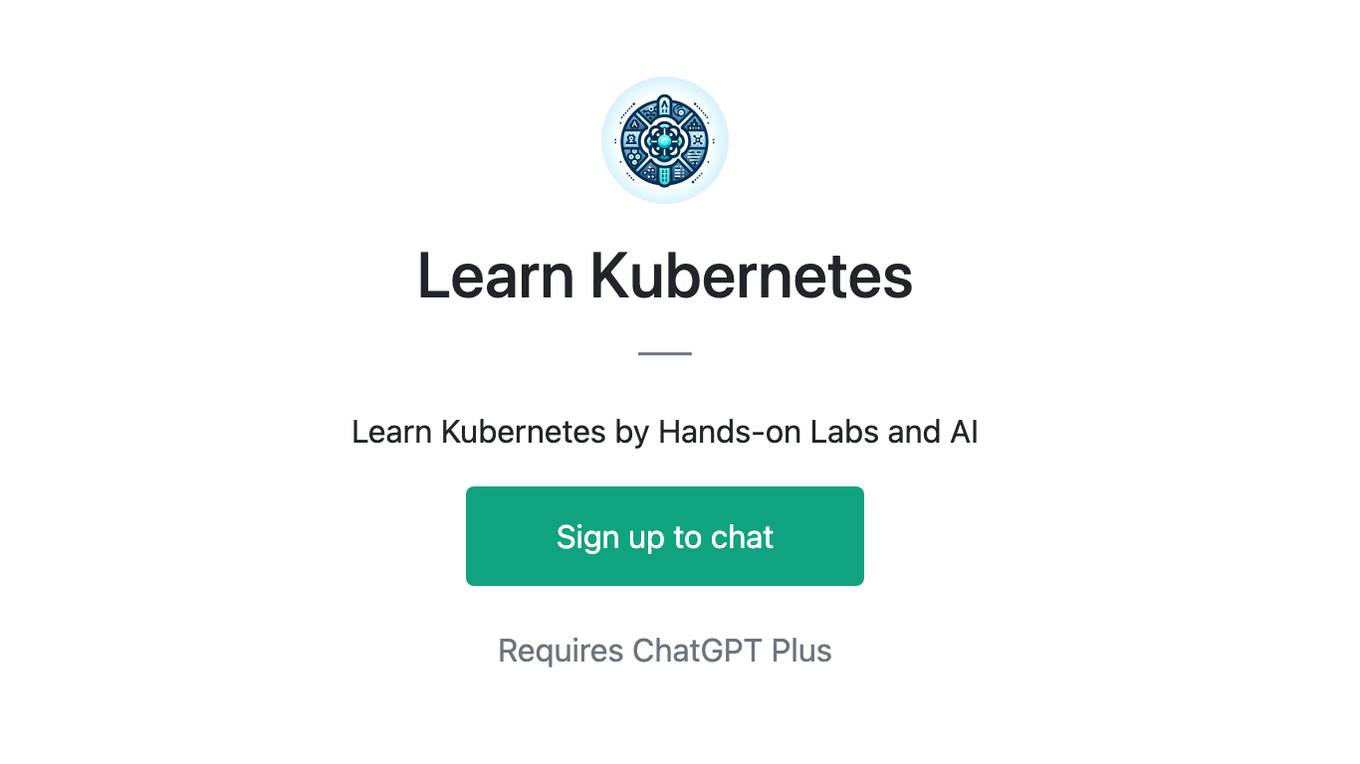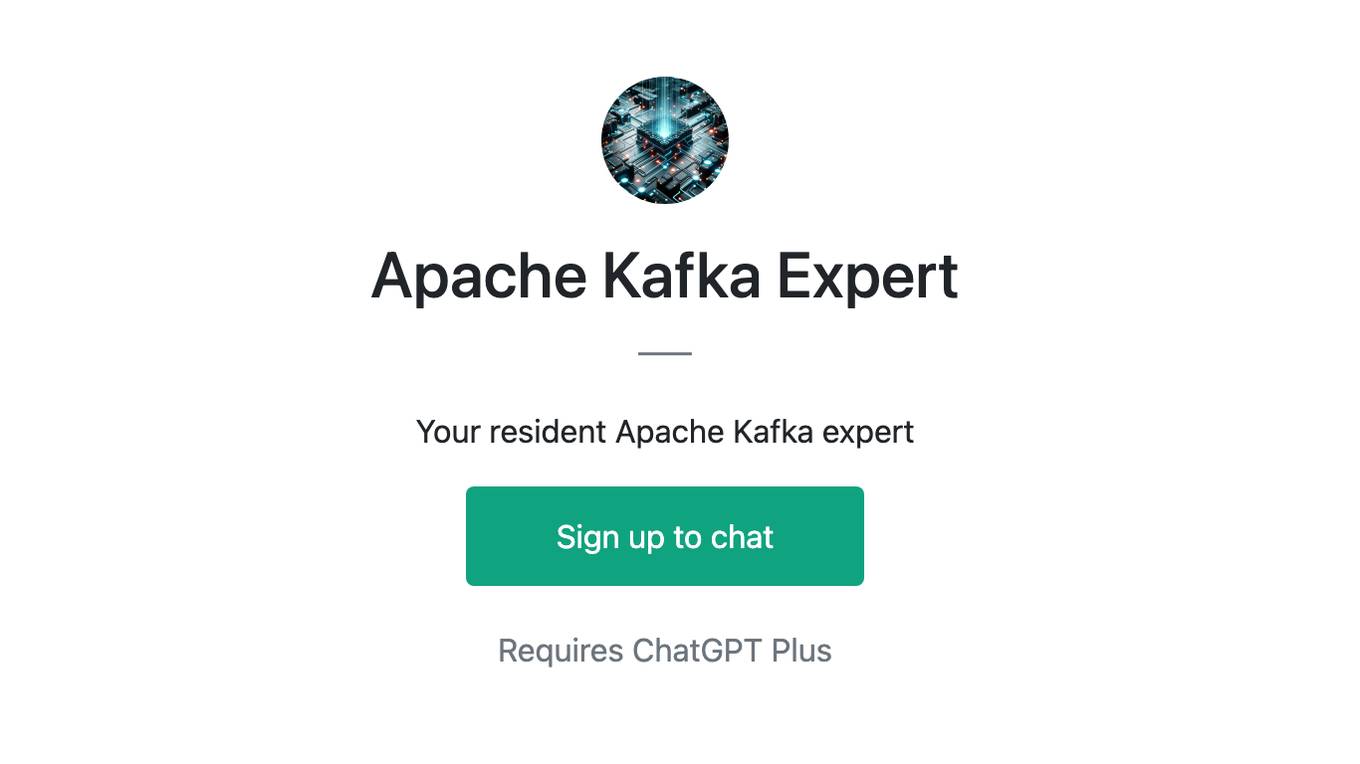Best AI tools for< Cluster Administrator >
Infographic
20 - AI tool Sites

Pulse
Pulse is a world-class expert support tool for BigData stacks, specifically focusing on ensuring the stability and performance of Elasticsearch and OpenSearch clusters. It offers early issue detection, AI-generated insights, and expert support to optimize performance, reduce costs, and align with user needs. Pulse leverages AI for issue detection and root-cause analysis, complemented by real human expertise, making it a strategic ally in search cluster management.
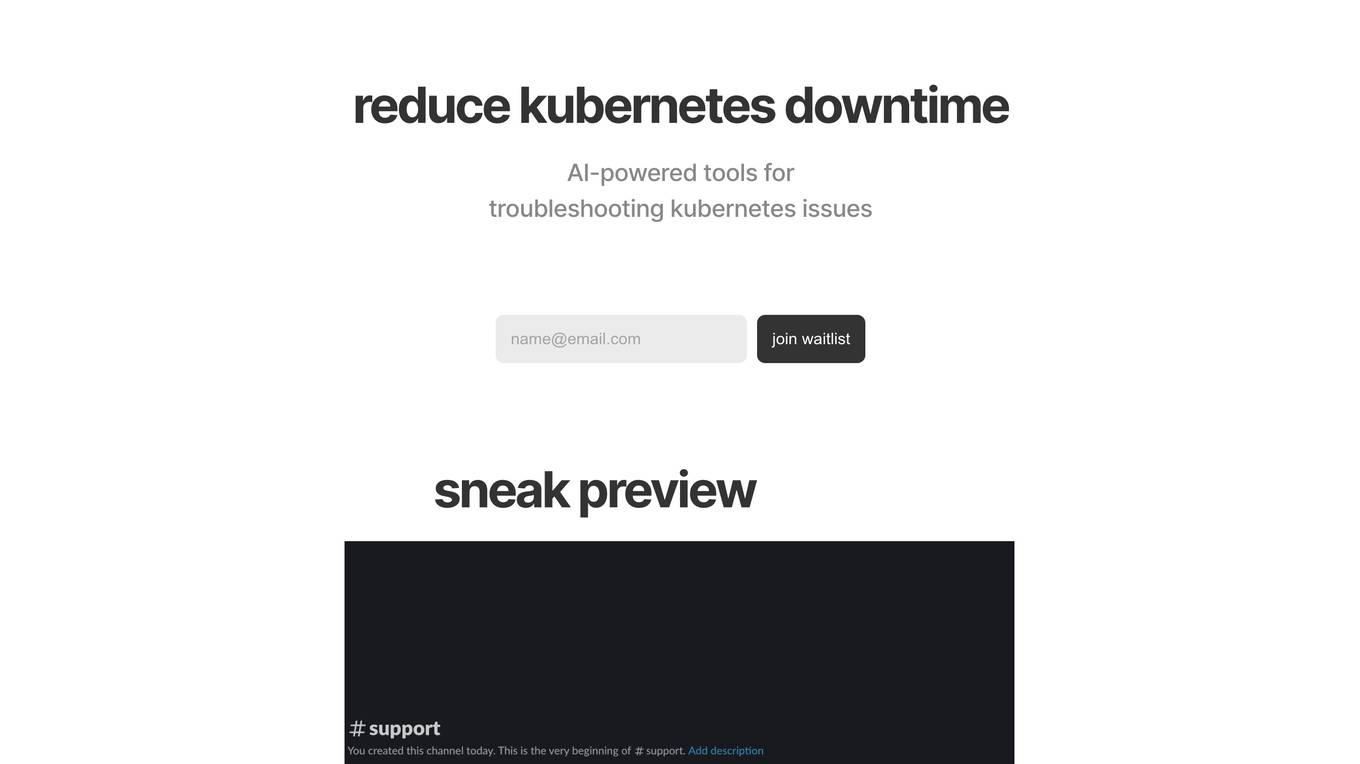
KubeHelper
KubeHelper is an AI-powered tool designed to reduce Kubernetes downtime by providing troubleshooting solutions and command searches. It seamlessly integrates with Slack, allowing users to interact with their Kubernetes cluster in plain English without the need to remember complex commands. With features like troubleshooting steps, command search, infrastructure management, scaling capabilities, and service disruption detection, KubeHelper aims to simplify Kubernetes operations and enhance system reliability.

Backend.AI
Backend.AI is an enterprise-scale cluster backend for AI frameworks that offers scalability, GPU virtualization, HPC optimization, and DGX-Ready software products. It provides a fast and efficient way to build, train, and serve AI models of any type and size, with flexible infrastructure options. Backend.AI aims to optimize backend resources, reduce costs, and simplify deployment for AI developers and researchers. The platform integrates seamlessly with existing tools and offers fractional GPU usage and pay-as-you-play model to maximize resource utilization.
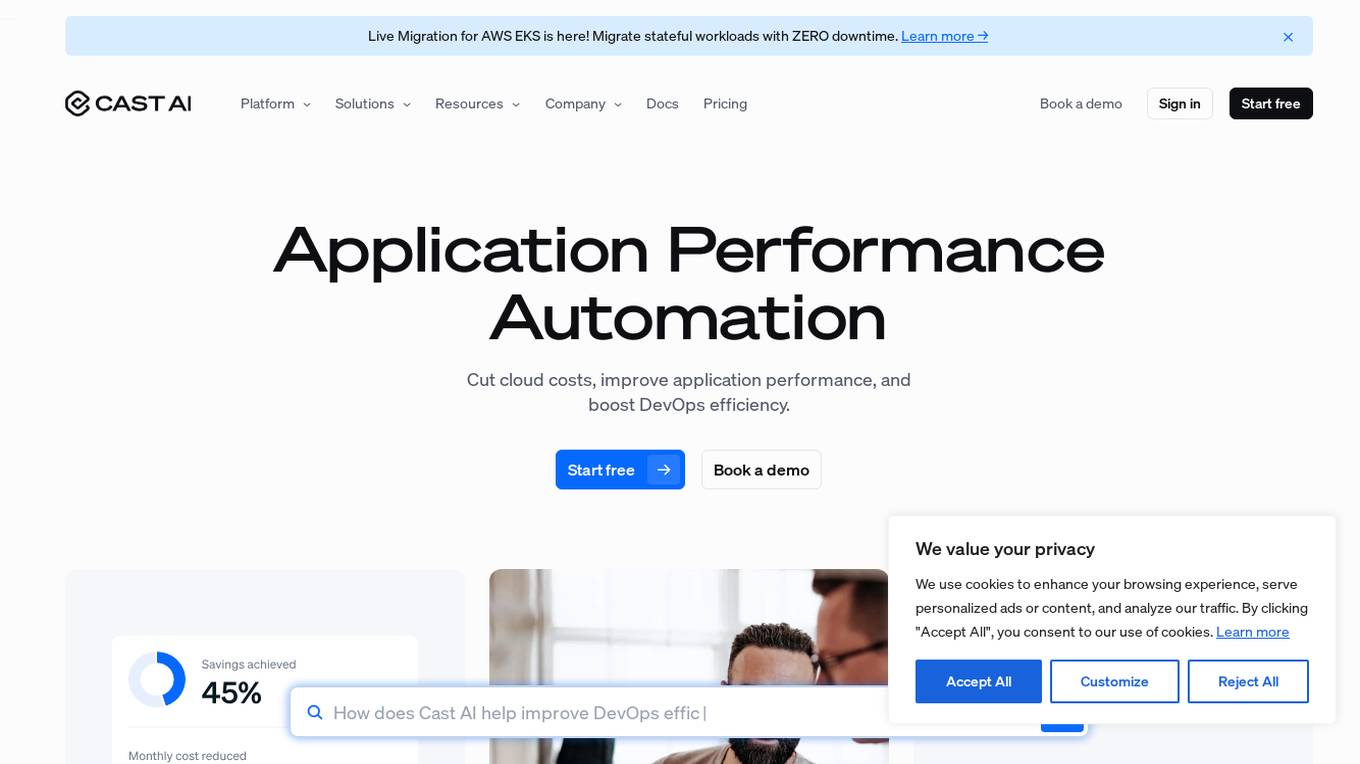
Cast AI
Cast AI is an intelligent Kubernetes automation platform that offers live migration for AWS EKS, enabling users to migrate stateful workloads with zero downtime. The platform provides application performance automation by automating and optimizing the entire application stack, including Kubernetes cluster optimization, security, workload optimization, LLM optimization for AIOps, cost monitoring, and database optimization. Cast AI integrates with various cloud services and tools, offering solutions for migration of stateful workloads, inference at scale, and cutting AI costs without sacrificing scale. The platform helps users improve performance, reduce costs, and boost productivity through end-to-end application performance automation.
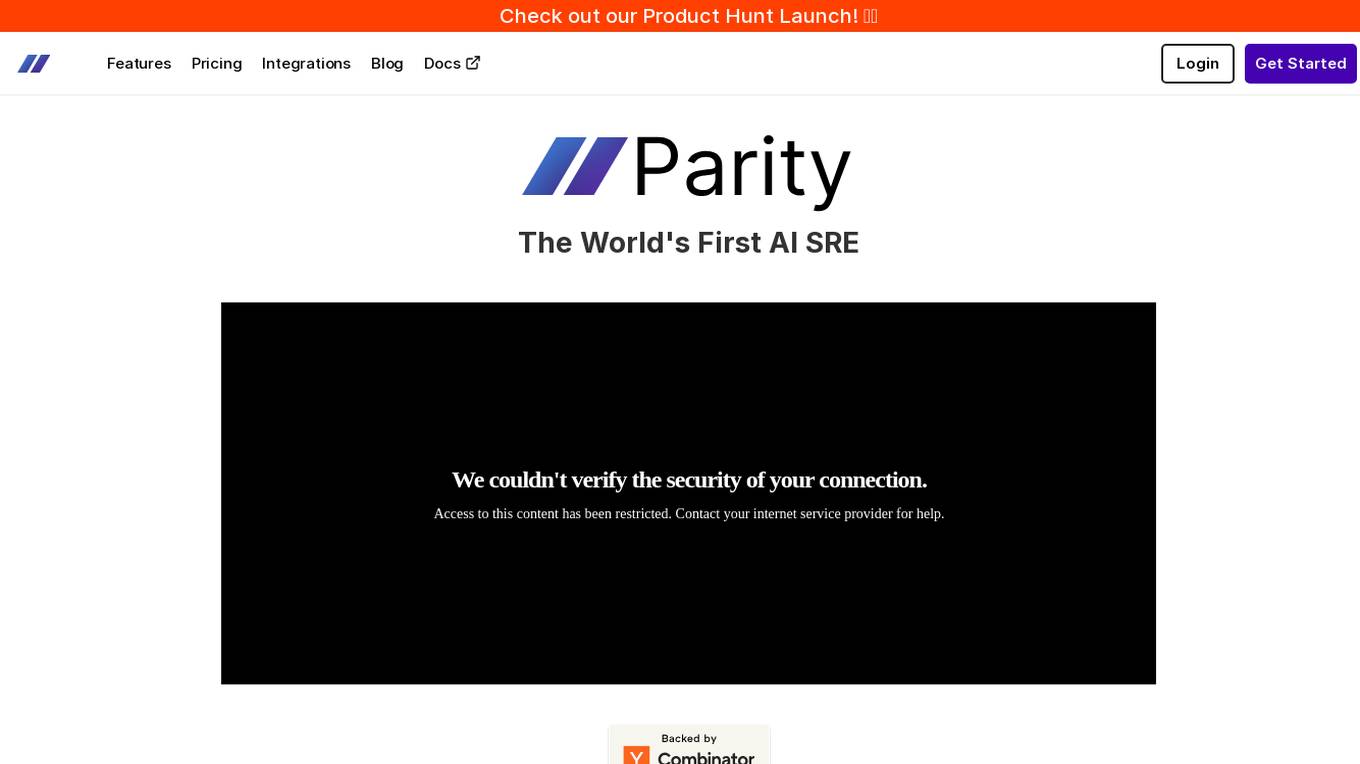
Parity
Parity is the world's first AI SRE tool designed to assist on-call engineers working with Kubernetes. It acts as the first line of defense by conducting investigations, determining root causes, and suggesting remediation before the engineer even opens their laptop. With features like Root Cause Analysis in Seconds, Intelligent Runbook Execution, and the ability to chat directly with the cluster, Parity streamlines incident response and enhances operational efficiency.

MailSynth
MailSynth is the first Gmail assistant designed specifically for individuals with ADHD. It helps users stay organized, informed, and stress-free by automatically labeling, highlighting, and archiving emails based on user instructions. The tool offers a daily briefing, custom auto-labeling, and archiving features to keep inboxes focused and clutter-free. MailSynth is praised for its ability to filter distractions, show key updates first, and help users save time and money by catching relevant discounts. It also allows users to enjoy newsletter content without the clutter and monitor keywords in emails. The tool prioritizes user privacy by ensuring emails stay within Google's ecosystem and running 100% on Google Infrastructure.
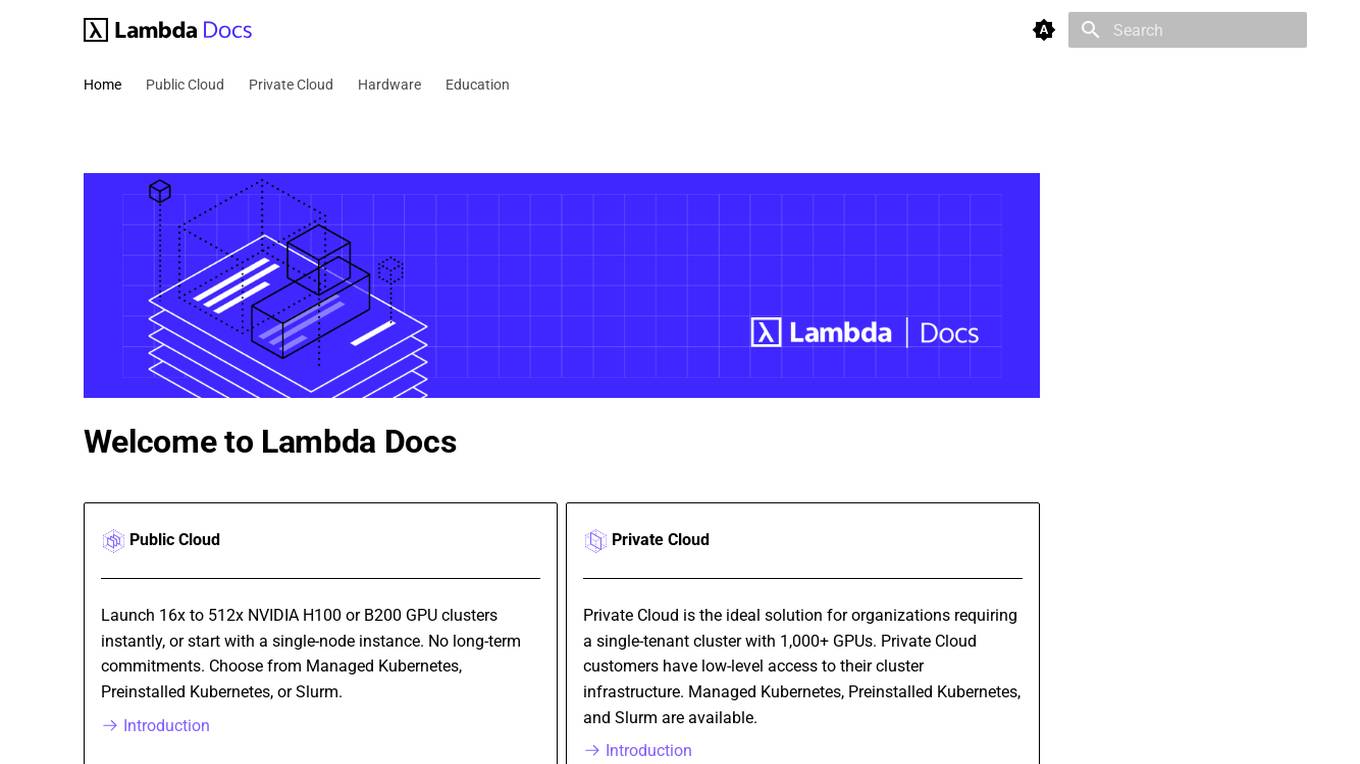
Lambda Docs
Lambda Docs is an AI tool that provides cloud and hardware solutions for individuals, teams, and organizations. It offers services such as Managed Kubernetes, Preinstalled Kubernetes, Slurm, and access to GPU clusters. The platform also provides educational resources and tutorials for machine learning engineers and researchers to fine-tune models and deploy AI solutions.
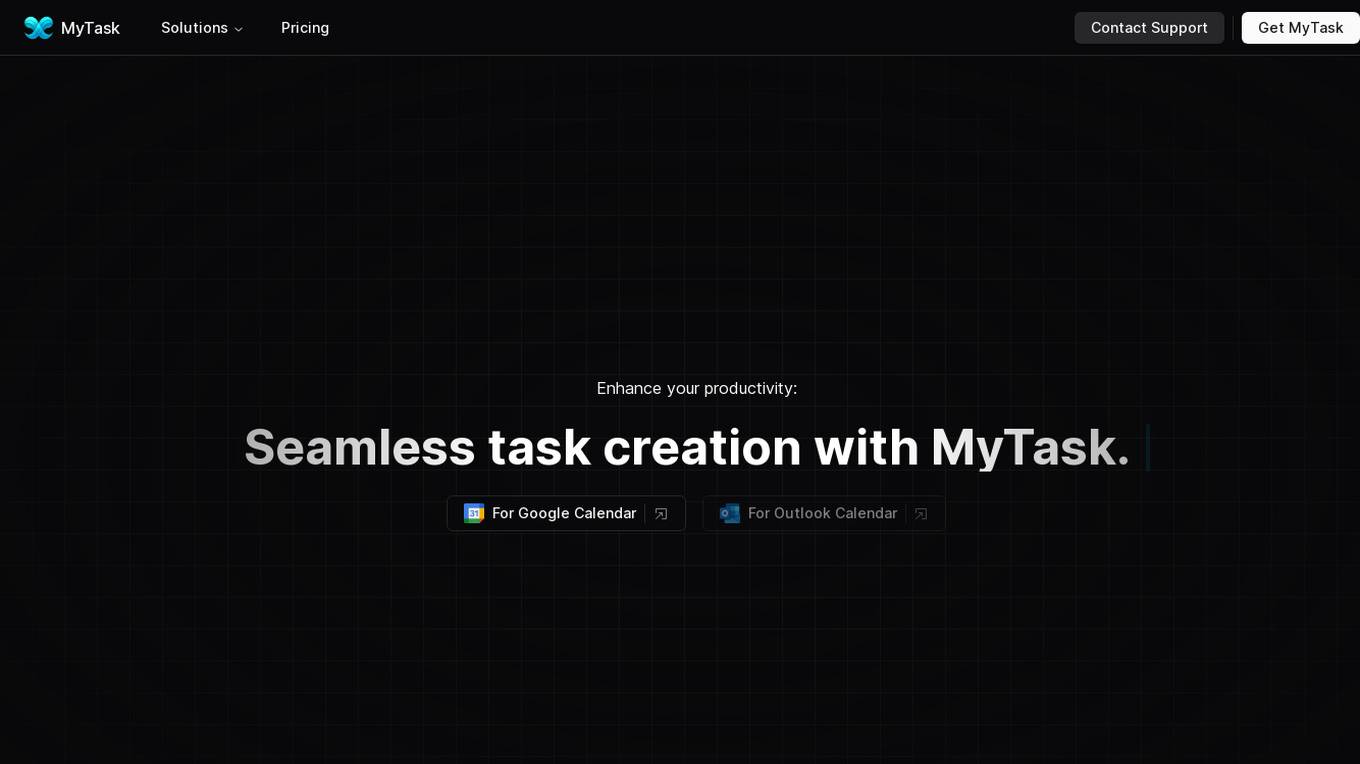
MyTask
MyTask is an AI-powered tool that simplifies event creation, editing, and organization within Google Calendar. It allows users to create events using natural language, eliminating the need for manual clicking and hassle. MyTask seamlessly integrates with Google Calendar, providing access to all its features, including recurring scheduling, attendee invites, and Google Meet creation. Its lightning-fast event creation, powered by GroqCloud API, interprets and creates events in under 1.5 seconds, twice the speed of manual event addition. Additionally, MyTask automatically generates event descriptions, keeping calendars organized and clutter-free.
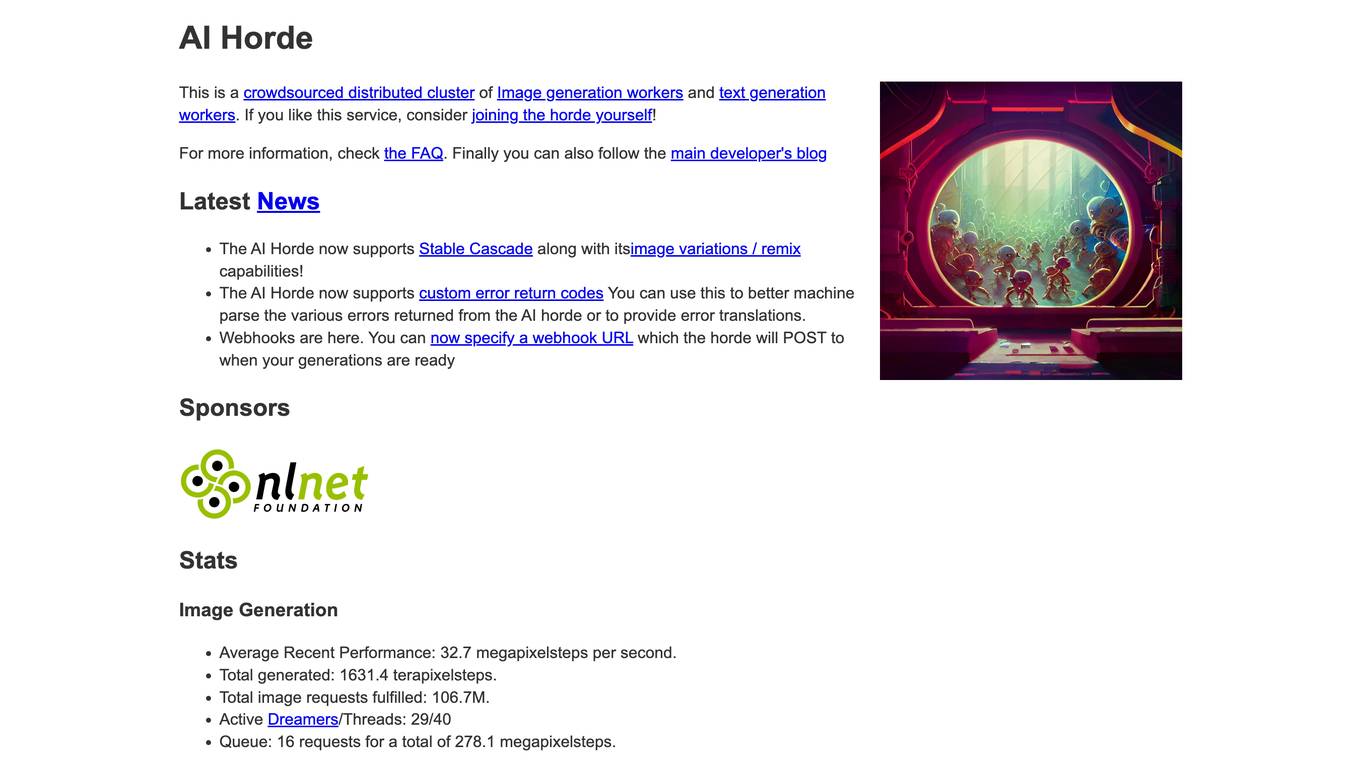
AI Horde
AI Horde is a crowdsourced distributed cluster of Image generation workers and text generation workers. It provides an API and various tools for developers to integrate AI-powered image and text generation into their applications. The AI Horde is supported by a community of volunteers who contribute their GPU processing power to the cluster.
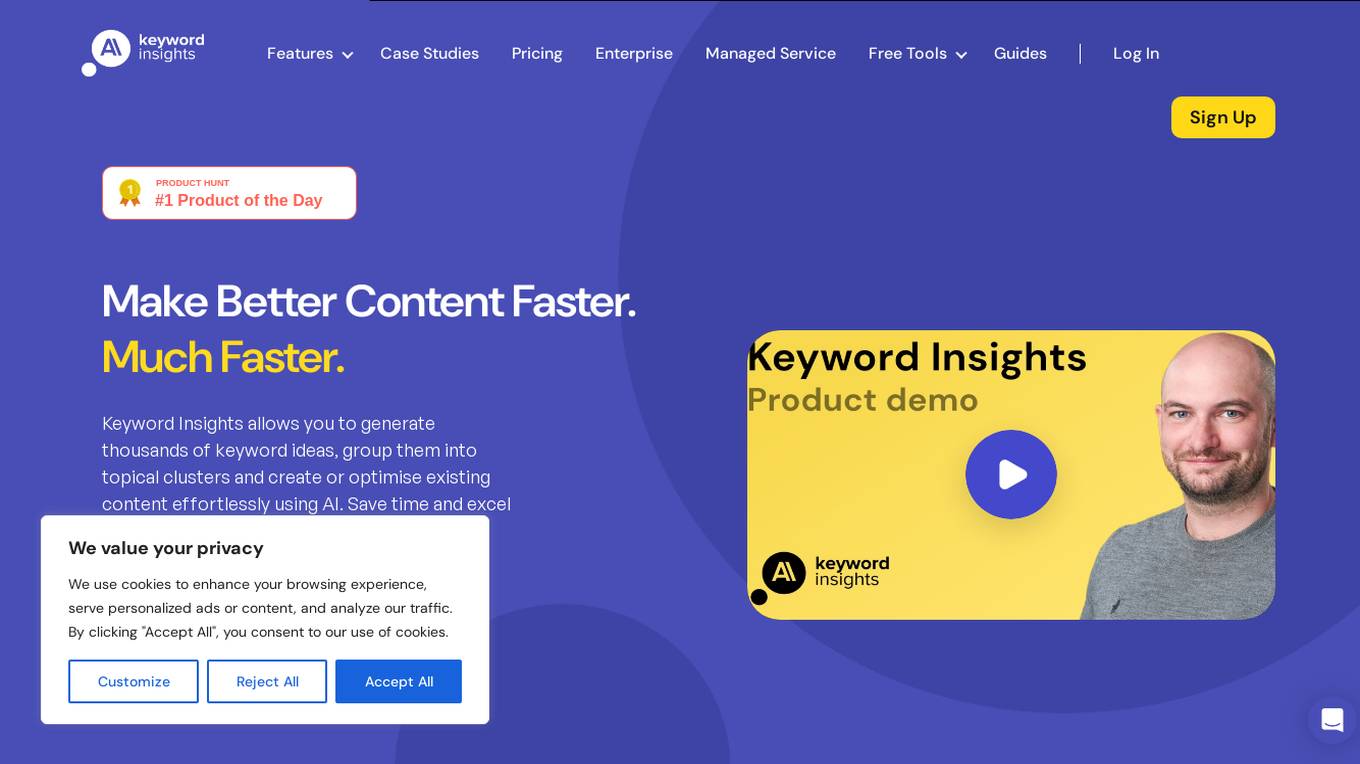
Keyword Insights
Keyword Insights is an AI-driven content marketing platform that offers a suite of tools to streamline keyword research, clustering, search intent analysis, content brief generation, and AI-powered writing assistance. The platform enables users to generate thousands of keyword ideas, group them into topical clusters, optimize existing content effortlessly, and excel in SEO without requiring expertise. Trusted by global agencies, SMBs, content marketers, and SEO experts, Keyword Insights helps users execute content marketing efforts with precision, efficiency, and effectiveness.
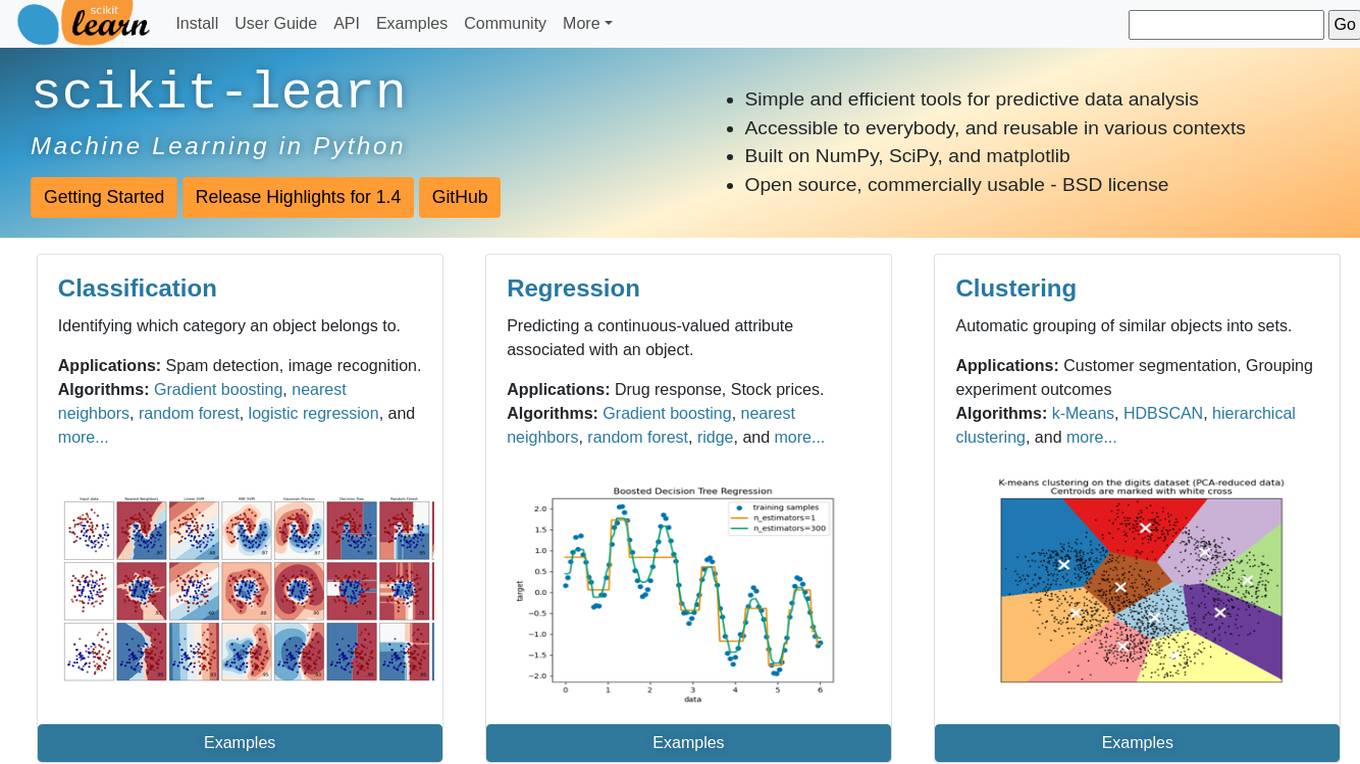
scikit-learn
Scikit-learn is a free software machine learning library for the Python programming language. It features various classification, regression and clustering algorithms including support vector machines, random forests, gradient boosting, k-means and DBSCAN, and is designed to interoperate with the Python numerical and scientific libraries NumPy and SciPy.
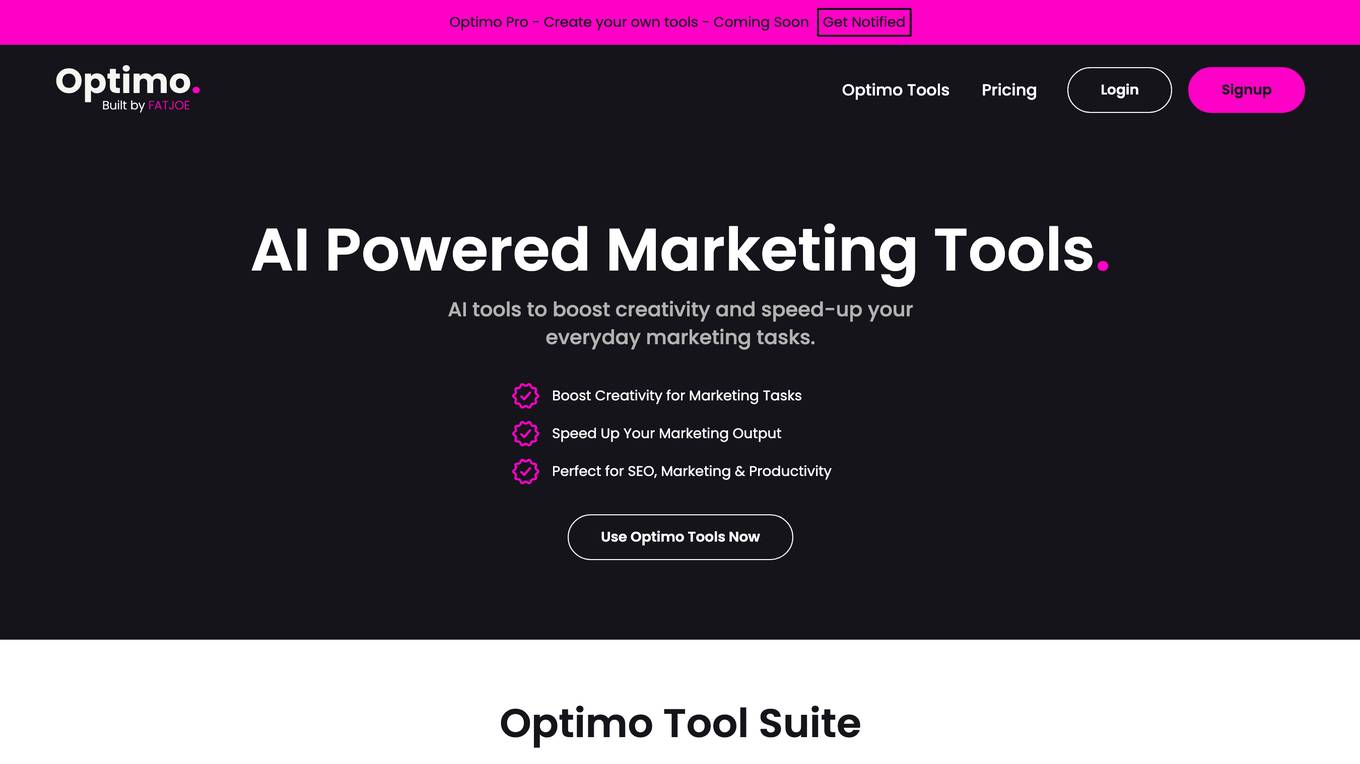
Optimo
Optimo is a suite of AI-powered marketing tools designed to boost creativity and speed up everyday marketing tasks. With Optimo, you can generate Instagram captions, blog post titles, keyword clusters, blog post briefs, and Facebook ad information in seconds. Optimo is perfect for SEO, marketing, and productivity.
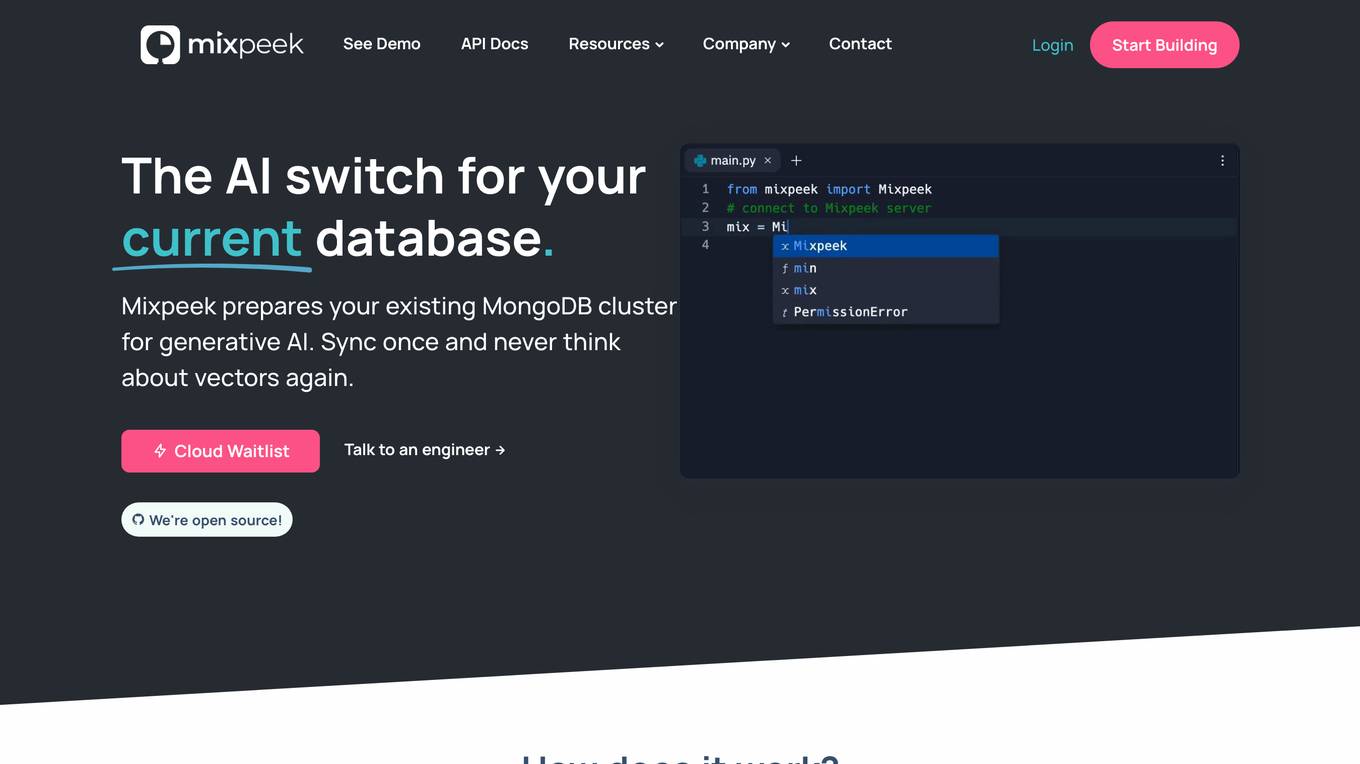
Mixpeek Solutions
Mixpeek Solutions offers a Multimodal Data Warehouse for Developers, providing a Developer-First API for AI-native Content Understanding. The platform allows users to search, monitor, classify, and cluster unstructured data like video, audio, images, and documents. Mixpeek Solutions offers a range of features including Unified Search, Automated Classification, Unsupervised Clustering, Feature Extractors for Every Data Type, and various specialized extraction models for different data types. The platform caters to a wide range of industries and provides seamless model upgrades, cross-model compatibility, A/B testing infrastructure, and simplified model management.
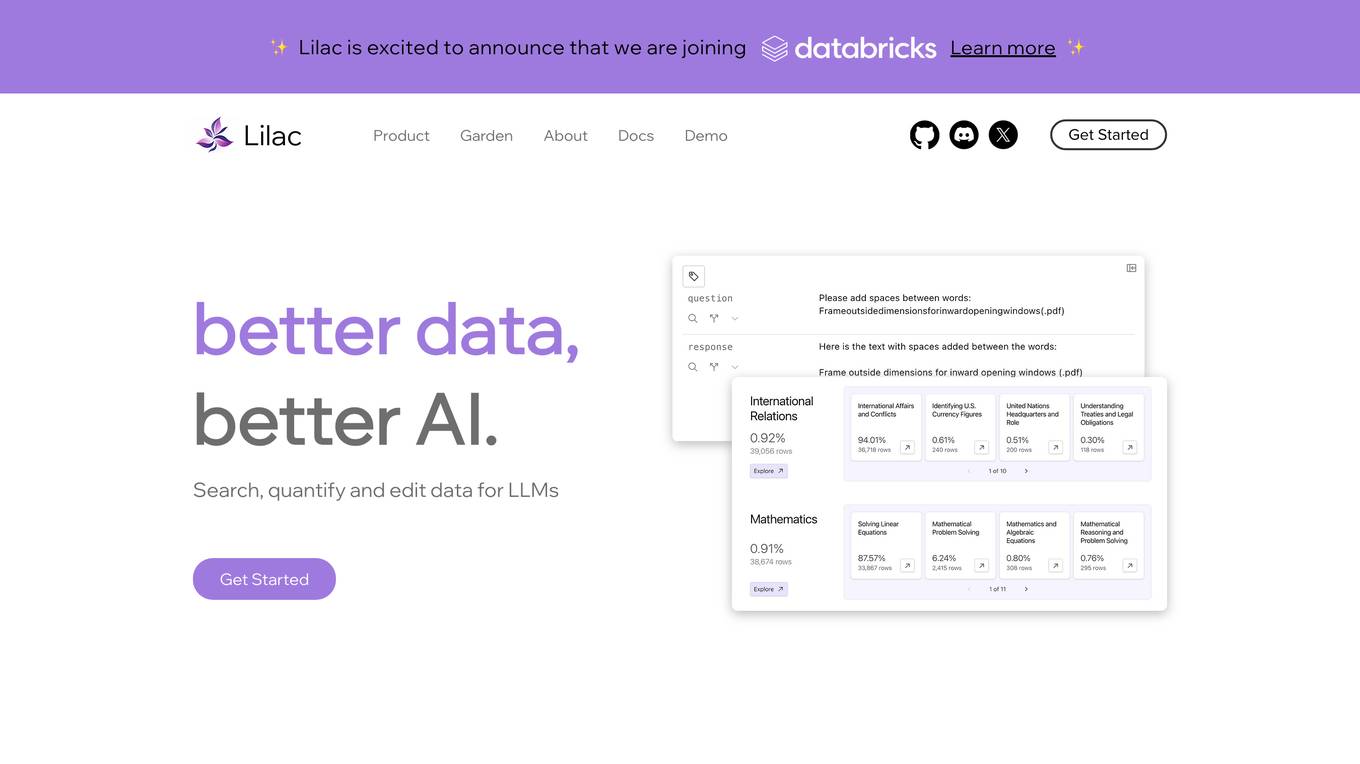
Lilac
Lilac is an AI tool designed to enhance data quality and exploration for AI applications. It offers features such as data search, quantification, editing, clustering, semantic search, field comparison, and fuzzy-concept search. Lilac enables users to accelerate dataset computations and transformations, making it a valuable asset for data scientists and AI practitioners. The tool is trusted by Alignment Lab and is recommended for working with LLM datasets.
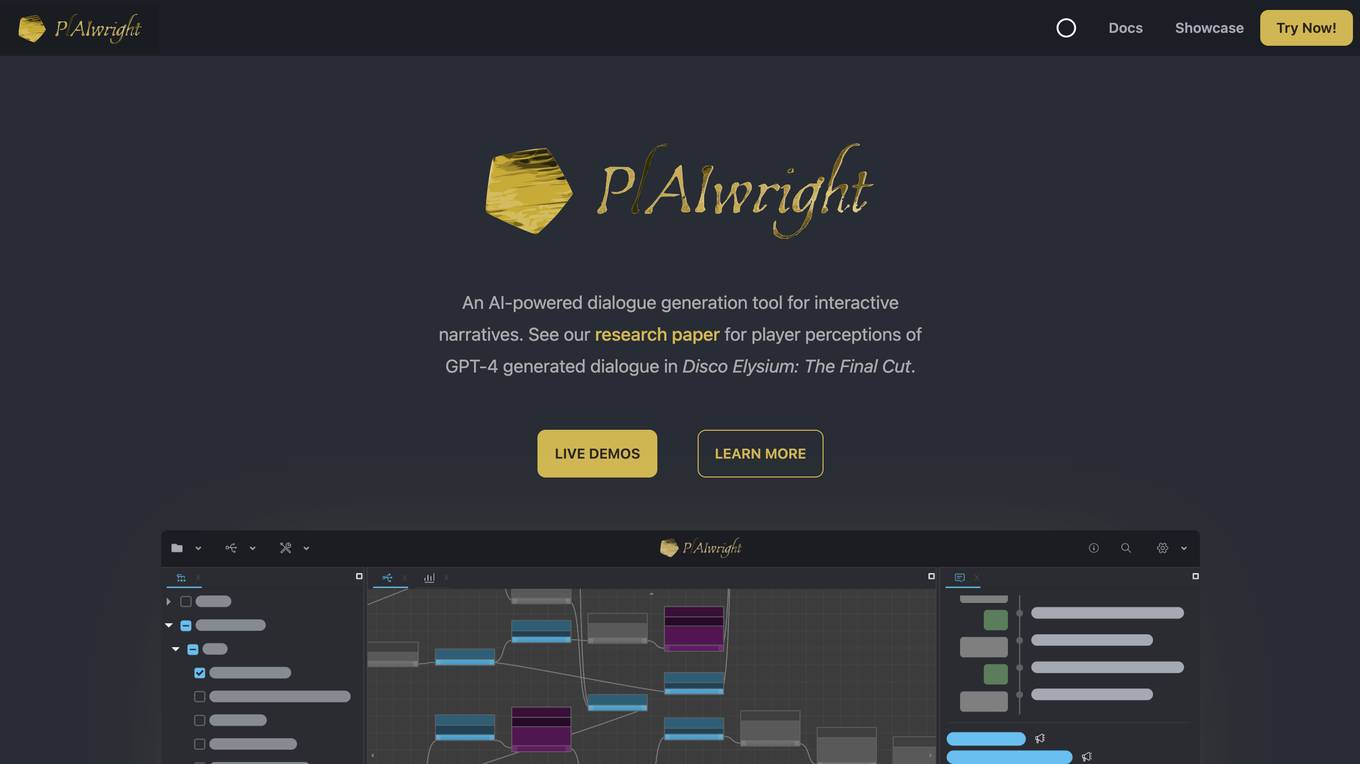
pl.aiwright
pl.aiwright is an AI-powered dialogue generation tool designed for interactive narratives. It offers features such as analyzing and clustering large dialogue graphs, dialogue generation using a mix of code and natural language, playtests for gathering user feedback, and tools for experimental analysis. The tool enables users to create engaging dialogues for various applications, such as games, virtual simulations, and interactive storytelling.

This Beach Does Not Exist
This Beach Does Not Exist is an AI application powered by StyleGAN2-ADA network, capable of generating realistic beach images. The website showcases AI-generated beach landscapes created from a dataset of approximately 20,000 images. Users can explore the training progress of the network, generate random images, utilize K-Means Clustering for image grouping, and download the network for experimentation or retraining purposes. Detailed technical information about the network architecture, dataset, training steps, and metrics is provided. The application is based on the GAN architecture developed by NVIDIA Labs and offers a unique experience of creating virtual beach scenes through AI technology.

Groq
Groq is a fast AI inference tool that offers GroqCloud™ Platform and GroqRack™ Cluster for developers to build and deploy AI models with ultra-low-latency inference. It provides instant intelligence for openly-available models like Llama 3.1 and is known for its speed and compatibility with other AI providers. Groq powers leading openly-available AI models and has gained recognition in the AI chip industry. The tool has received significant funding and valuation, positioning itself as a strong challenger to established players like Nvidia.

Mystic.ai
Mystic.ai is an AI tool designed to deploy and scale Machine Learning models with ease. It offers a fully managed Kubernetes platform that runs in your own cloud, allowing users to deploy ML models in their own Azure/AWS/GCP account or in a shared GPU cluster. Mystic.ai provides cost optimizations, fast inference, simpler developer experience, and performance optimizations to ensure high-performance AI model serving. With features like pay-as-you-go API, cloud integration with AWS/Azure/GCP, and a beautiful dashboard, Mystic.ai simplifies the deployment and management of ML models for data scientists and AI engineers.
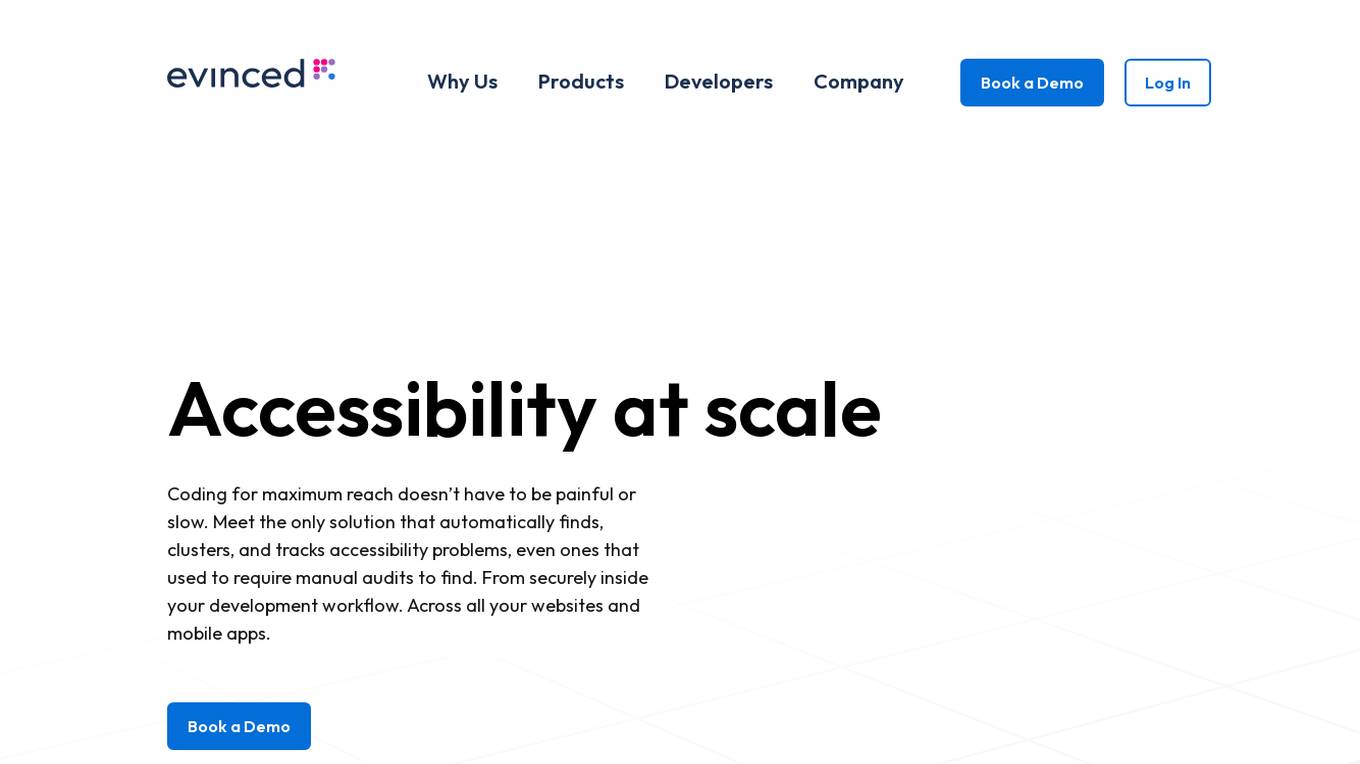
Evinced
Evinced is an AI-powered accessibility tool that helps developers identify and address accessibility issues in websites and mobile apps. By utilizing AI and machine learning, Evinced can automatically find, cluster, and track accessibility problems that would typically require manual audits. The tool provides a comprehensive solution for developers to ensure their digital products are accessible to all users. Evinced offers features such as advanced bug detection, organization of issues, lifecycle tracking, easy integration with existing testing systems, and more.

SEO Content AI
SEO Content AI is an AI-driven solution that optimizes content for search engines and enhances online presence with high-quality, long-form content. It offers features like Bulk Content Generation, Content Cluster Creation, Multi-Language Content Generation, AI-Powered Internal Linking, and Exact Keyword Targeting. The application helps users automate content creation, improve SEO, and tailor content strategies to meet specific goals. With capabilities for local cluster content automation and multi-cluster content automation, SEO Content AI streamlines content creation and boosts local search ranking.
1 - Open Source Tools
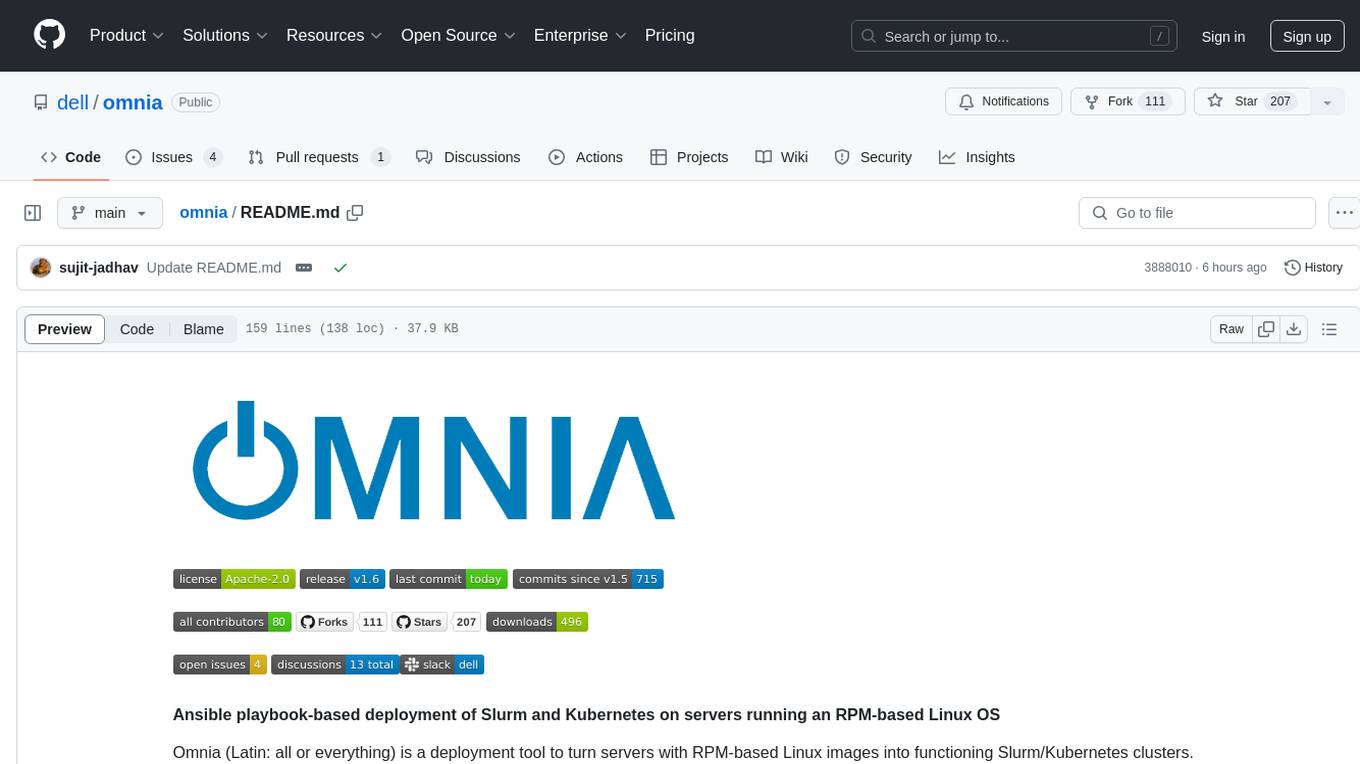
omnia
Omnia is a deployment tool designed to turn servers with RPM-based Linux images into functioning Slurm/Kubernetes clusters. It provides an Ansible playbook-based deployment for Slurm and Kubernetes on servers running an RPM-based Linux OS. The tool simplifies the process of setting up and managing clusters, making it easier for users to deploy and maintain their infrastructure.
10 - OpenAI Gpts

Docker and Docker Swarm Assistant
Expert in Docker and Docker Swarm solutions and troubleshooting.
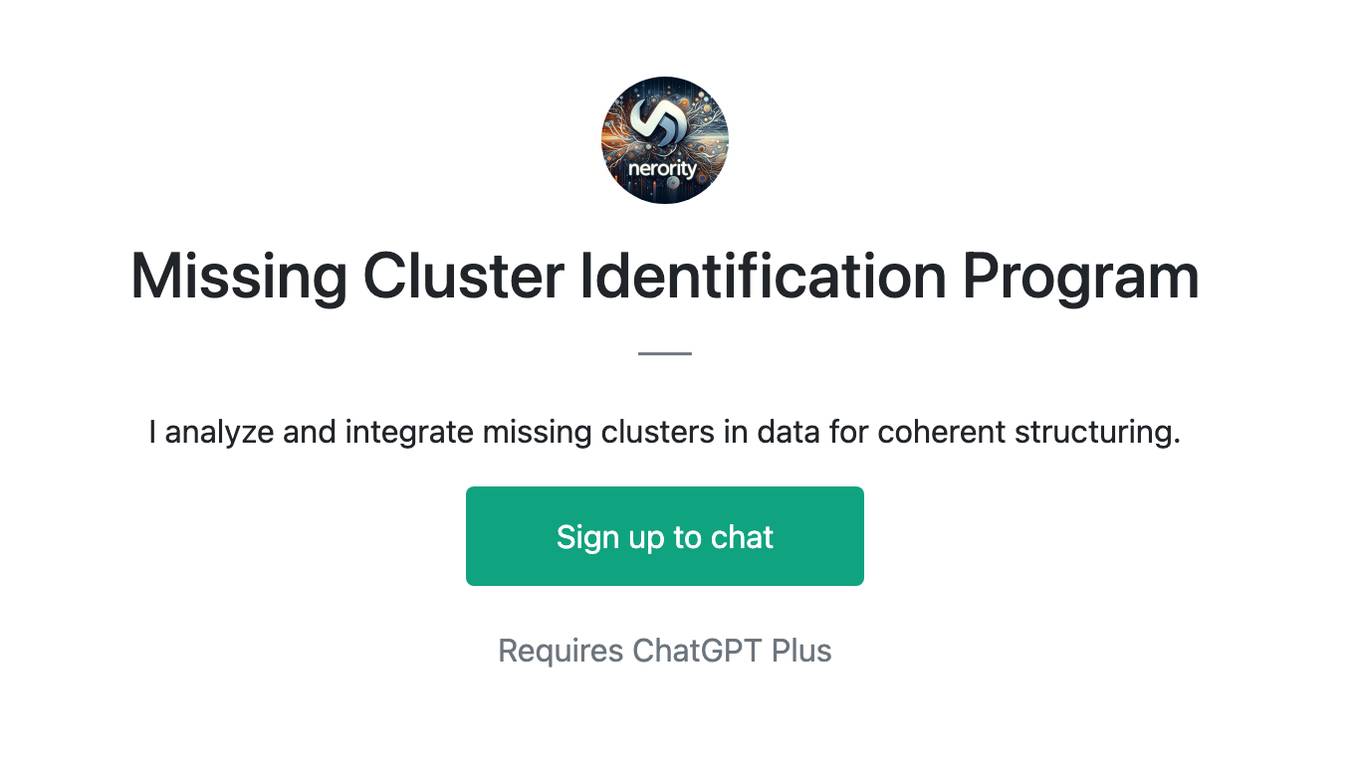
Missing Cluster Identification Program
I analyze and integrate missing clusters in data for coherent structuring.
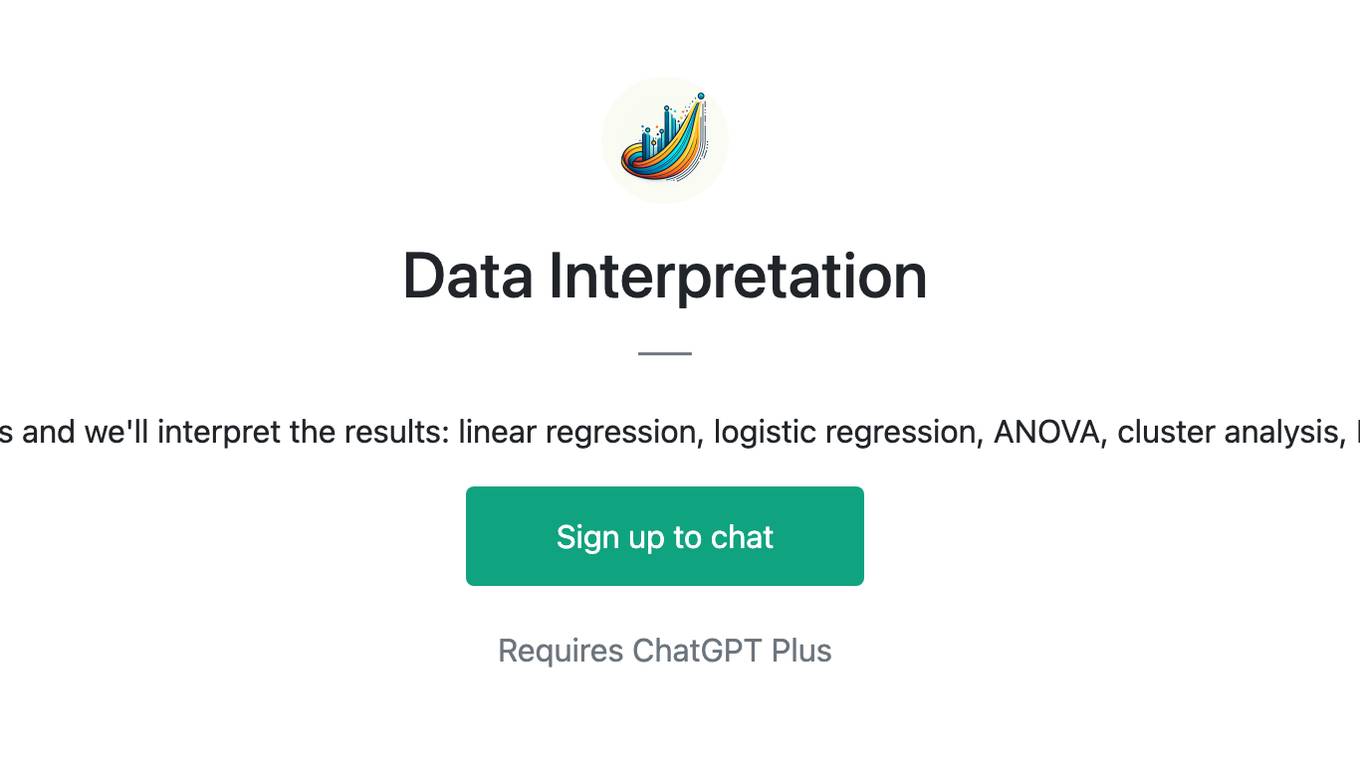
Data Interpretation
Upload an image of a statistical analysis and we'll interpret the results: linear regression, logistic regression, ANOVA, cluster analysis, MDS, factor analysis, and many more
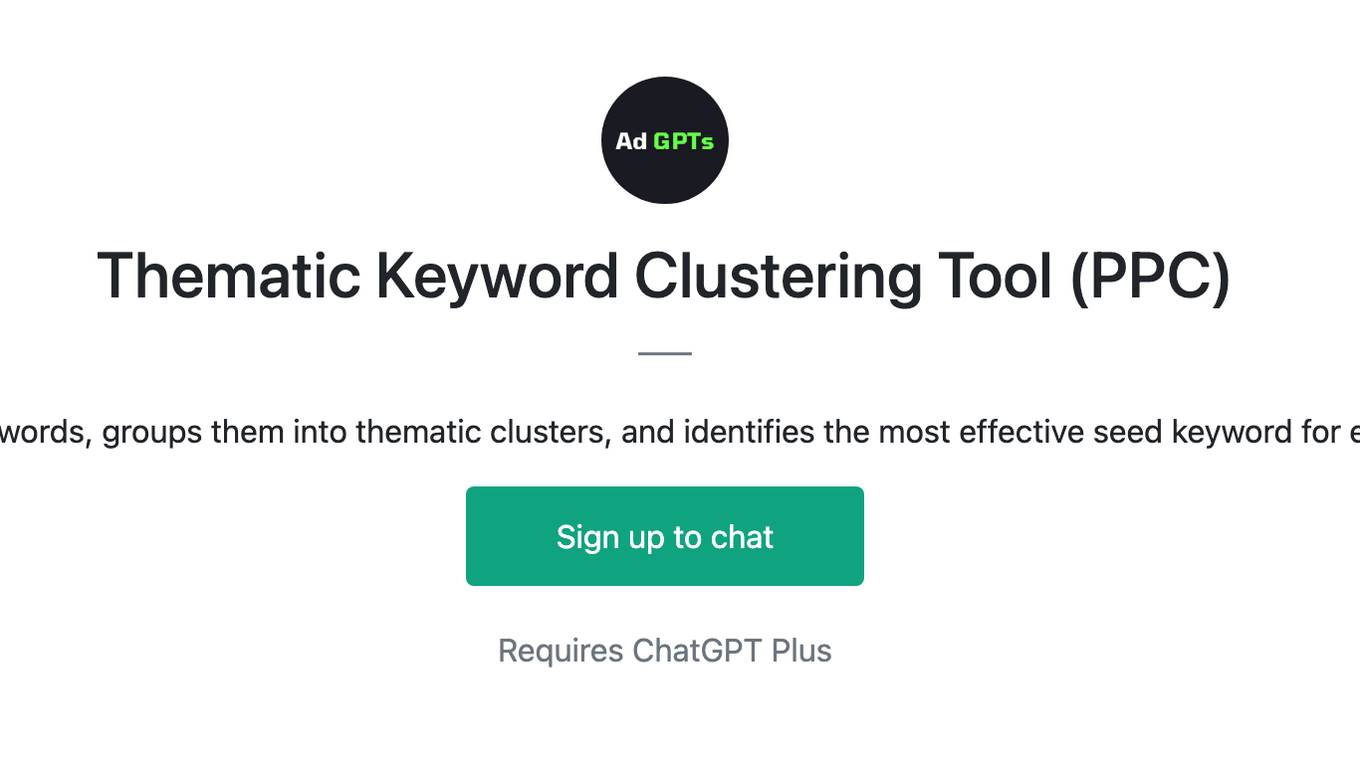
Thematic Keyword Clustering Tool (PPC)
Analyzes keywords, groups them into thematic clusters, and identifies the most effective seed keyword for each group.
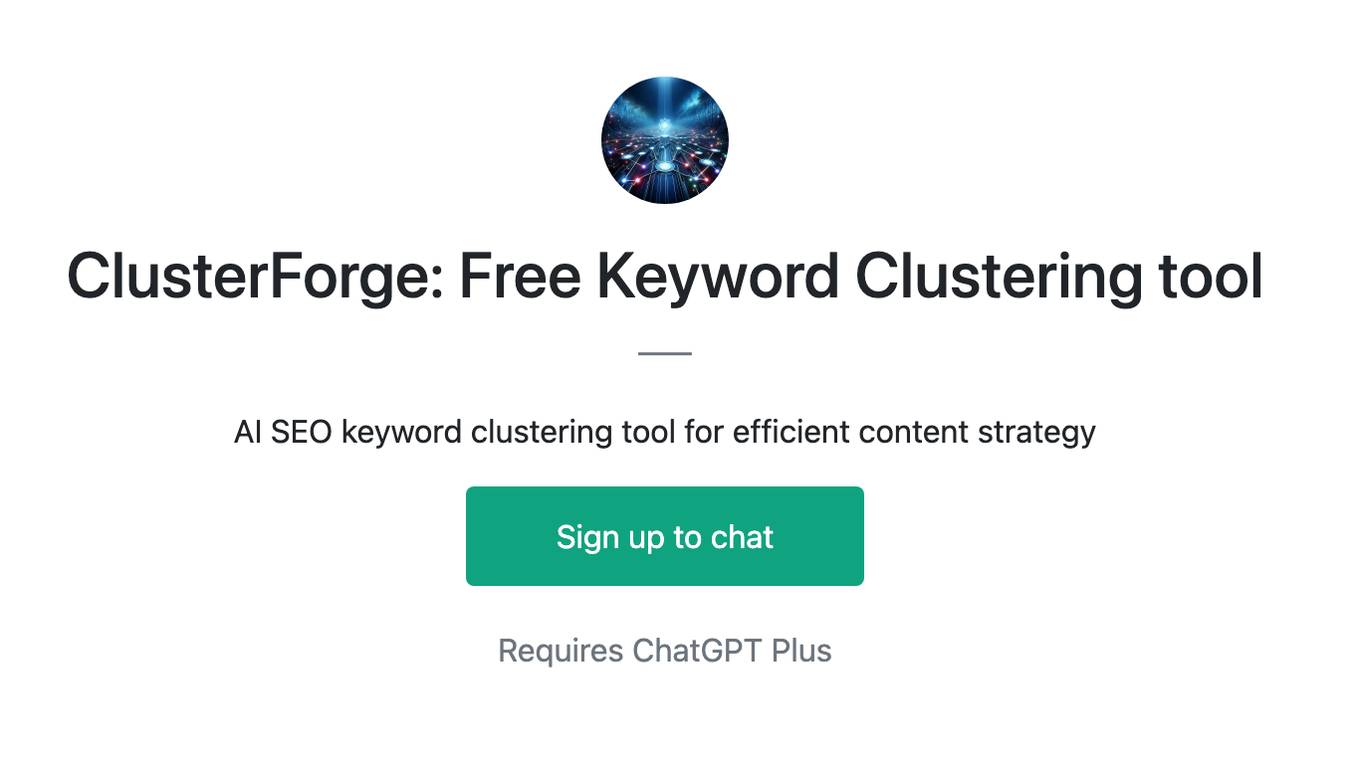
ClusterForge: Free Keyword Clustering tool
AI SEO keyword clustering tool for efficient content strategy
